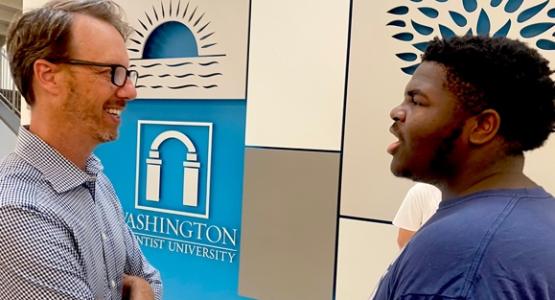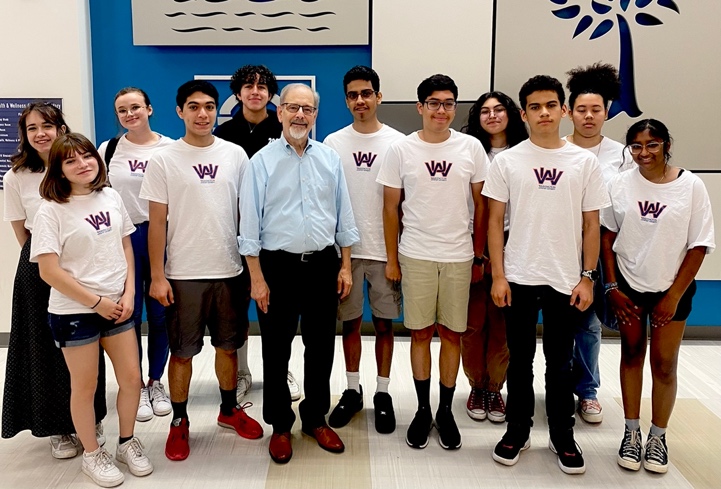
WAU's Dual Enrollment Class: A Unique Approach to Learning
Story by WAU Staff
When thirteen students from Columbia Union academies signed up for Washington Adventist University (WAU)’s dual- enrollment US Government class this summer, little did they know they wouldn’t just learn about government—they would live it.
Unlike traditional university classes, WAU’s dual-enrollment US Government class incorporates experiential learning, or “learning by doing.” Because of the university’s proximity to Washington, D.C., students are able to make several trips on-location for a front-row seat to the US government in action.
WAU is the only Adventist college that could put on a class like this,” says attorney James Standish, who conceived and taught the class. “We’re a short trip to Capitol Hill, the White House, the Supreme Court and to everyone who works there. If you want to study marine biology, you go to the ocean. If you want to really understand law, civil rights, religious freedom, public policy and the government [...] there’s no better place than WAU.”
Beyond trips to the nation’s capital, the class features a number of high-profile guest lecturers. This summer, Standish invited government leaders, including an FBI agent, a Department of Justice lawyer who has litigated some of the most significant legal battles in recent history, and a rocket scientist who helped put the Webb Space Telescope in orbit.
When students weren’t sitting in on fascinating lectures or traveling on-location, they were engaging in role-play debates. In the first week of class this summer, students chose constitutional amendments to debate with each other. After being broken into teams, they dedicated hours of research into their topics with one goal in mind: win the approval of their classmates who held the final vote.

“The students did a brilliant job laying out the pros and cons,” Standish said. “At the end of each debate, the nonparticipating class members voted on the amendment—thumbs up or thumbs down—and on which team did the better job. Because winning an argument doesn’t always mean you win the vote.”
Later on, students stepped into the shoes of US lawmakers and were tasked with cutting $1 trillion from the federal deficit. Each student embraced their role to the fullest: Republicans and Democrats from both the House and Senate. After what Standish described as a “tense” few hours of tug-of-war negotiations, the students—legislators— reached an agreement just minutes before the imposed deadline in what was a dramatic end to an exhausting yet rewarding experience.
“The class was amazing,” said Bethany Krause. “I’m actually sad it’s over, which is saying something because I’m voluntarily waking up at 6 a.m. in summer ... there were so many once-in-a-lifetime opportunities.”
Moises Velasquez echoed his classmate’s sentiment, stating, “what I really liked about the class was that it was hands- on. We talked about the government, and then we got to see the government.”
If you’re interested in taking the US Government class next summer, send a note to USGovernment2023@outlook.com.

Add new comment